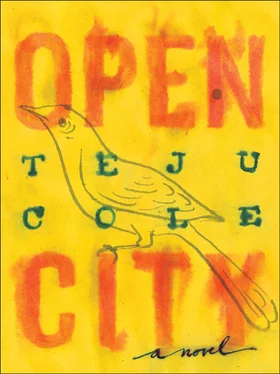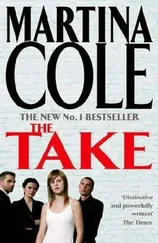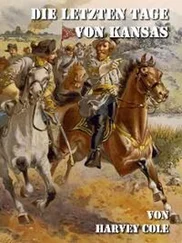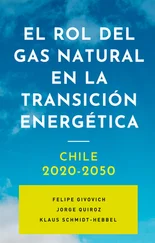Teju Cole - Open City
Здесь есть возможность читать онлайн «Teju Cole - Open City» весь текст электронной книги совершенно бесплатно (целиком полную версию без сокращений). В некоторых случаях можно слушать аудио, скачать через торрент в формате fb2 и присутствует краткое содержание. Год выпуска: 2011, Издательство: Random House, Жанр: Современная проза, на английском языке. Описание произведения, (предисловие) а так же отзывы посетителей доступны на портале библиотеки ЛибКат.
- Название:Open City
- Автор:
- Издательство:Random House
- Жанр:
- Год:2011
- ISBN:нет данных
- Рейтинг книги:5 / 5. Голосов: 1
-
Избранное:Добавить в избранное
- Отзывы:
-
Ваша оценка:
- 100
- 1
- 2
- 3
- 4
- 5
Open City: краткое содержание, описание и аннотация
Предлагаем к чтению аннотацию, описание, краткое содержание или предисловие (зависит от того, что написал сам автор книги «Open City»). Если вы не нашли необходимую информацию о книге — напишите в комментариях, мы постараемся отыскать её.
But it is not only a physical landscape he covers; Julius crisscrosses social territory as well, encountering people from different cultures and classes who will provide insight on his journey — which takes him to Brussels, to the Nigeria of his youth, and into the most unrecognizable facets of his own soul.
Open City — читать онлайн бесплатно полную книгу (весь текст) целиком
Ниже представлен текст книги, разбитый по страницам. Система сохранения места последней прочитанной страницы, позволяет с удобством читать онлайн бесплатно книгу «Open City», без необходимости каждый раз заново искать на чём Вы остановились. Поставьте закладку, и сможете в любой момент перейти на страницу, на которой закончили чтение.
Интервал:
Закладка:
My foolish childhood dream was to have my Ph.D. at twenty-five. I finished my first degree in Rabat at twenty-one, and I knew my exact path. Well, I’m twenty-nine now. I transferred to the university in Liège, and I’m doing a part-time master’s degree in translation. I commute there twice a week, sometimes three times, but, deep inside, I know that this is a course that has nothing to do with me. I am meant to be a scholar. I might apply for a doctorate, in translation. I want to write about Babel, about how the many languages came out of one — a religious idea, maybe, but I can do a scholarly study of it. It’s not my first choice, but what can I do? The other door is closed now.
Farouq’s eyes shone. The wound ran deep. How many would-be radicals, just like him, had been formed on just such a slight? It was time for us to leave. He had brought me too close to his pain, and I no longer saw him. In his place what I saw was the young Vito Corleone, who moved stealthily across the rooftops of Little Italy, making his way toward the house of the soon-to-be-usurped local godfather; this Vito whose will would carry him much further than he could imagine or desire, whose future would seem all out of proportion to that lithe young man who flowed swiftly from one low roof to another with only a single murderous action in mind.
Farouq drained his glass. There was something powerful about him, a seething intelligence, something that wanted to believe itself indomitable. But he was one of the thwarted ones. His script would stay in proportion.
TEN
I was running across Lagos with my sister. We were doing a marathon, and having to push vagrants and street dogs out of our way. But I have no sister; I’m an only child. When I suddenly awoke, it was to total darkness. My eyes tried to adjust. From the warmth of the bed, the sound of traffic reached me. As always when one wakes up like this, it was impossible to tell the time. But a deeper terror immediately gripped me: I couldn’t remember where I was. A warm bed, darkness, the sound of traffic. What country is this? What is this house, and who am I with? I reached out a hand; there was no one else in the bed. Was I alone because I had no partner, or because my partner was far away? I floated in the dark, anonymous to myself, lost in the sensation that the world existed but I was no longer part of it.
The first question that found its answer was about the partner: I had no partner, I was alone. The fact arrived, and it calmed me immediately. The distress had been in not knowing. Then other information came: I was in Brussels, Belgium, in a rented apartment, the apartment was on the ground floor of the building, and the rumble outside was from the garbage trucks. The trucks came on Fridays, before daybreak. I was someone, not a body without a being. I had slowly returned to myself from a distance. The effort of gathering this ballast for my identity, trivial-seeming ballast without which my heart might have given out, was exhausting. I fell back to dreamless sleep, and the trucks continued to rumble outside. When I finally woke up again, it was almost noon. The natural light that filled the room was diluted by rain. It was the seventh day of the rain, which had been nagging, trickling, falling without biblical grandeur. But its longevity reminded me of the only other rain I could recall that had lasted for days. There must have been others, but only that solitary incident stood out now in memory. I was nine at the time, so it was the year before I was sent away to boarding school.
That day had started with clear weather, hot, like any in the endless blur of hot days normal to us in all months of the year. I had come home from school at two, had lunch, and taken a nap, which was unusual for me. When I woke up, my mother had gone out, to the market, or to the bank. My father would not return from work for a few hours yet, and only my mama, my father’s mother, was home. Her room was at the back of the ground floor of the house, in the section behind the kitchen, in the same part of the house where the study was. I went to see her, but she was still asleep. The electricity was out. If it hadn’t been, I might have watched some television. I wasn’t permitted to do so on school days, and the only things of interest on the weekends were the sports review shows: English soccer on Saturday evenings and the Italian league on Sundays. So the television rule was one I broke casually when my mother happened to be out on a weekday afternoon. Mama was hard of hearing. If she was downstairs, I could tell her I was going up to do my homework and easily watch two hours of television until the horn of my mother’s car sounded at the gate. With the power cut, TV was out of the question and I was at a loss. I wandered back downstairs, to the kitchen, and opened the fridge. It didn’t hum and no light came on. The bottles inside were beginning to sweat: the boiled water we drank, the fermented ogi for breakfast, the Coca-Cola and other minerals kept there in case we had guests.
The minerals were for parties and special events. When other families with their children came to visit, we served them, and the children always tussled over who got to drink Fanta — the most desired — or 7-Up or, at the bottom of the hierarchy, Coca-Cola. It was an absurd ranking. Some children believed Coke would make them darker, just as they believed that eating amala would make them darker. The younger ones would cry if the Fanta had all been taken and they were left with Coke. As a “half-caste,” I had no conception of what it would mean to be darker; it was the least of my worries. And as an only child, I had formed my tastes simply, on the basis of what appealed to me. I liked Coke because nothing else tasted like it. The fizziness in the other drinks was never as convincing, and Fanta was too sickly sweet. But in our house, as with all good things in childhood, Coke was a controlled substance. I could no sooner just take a bottle of Coke out of the fridge than open up my father’s whiskey cabinet. And so the temptation came at me on that hot day: I wanted a Coke. I didn’t stamp my feet, or clench my fists: no one was present to view a petulant display. Mama was asleep and, in any case, she didn’t have the say-so over the Cokes. I pushed the fridge door back and forth on its hinge.
Only my mother could give permission. I could wait for her return, but my desire was nothing rational; it would have been like asking her for permission to add my clothes to the washerman’s pile instead of washing them myself. She would have looked at me, puzzled, and told me that I was no longer a child, and that I should think about how fortunate I was compared to other children. By the time I asked, I would have become embarrassed at the infantile nature of the request; her pretense at surprise would be unbearable for a proud boy like me. But these rules were all my father’s. He had clear ideas about how not to spoil a child. The enforcement, though, had fallen to my mother, and if I resented the rules — which I only rarely did, as they were the only conception I had of childhood — if on rare occasions I ever resented the rules, I did so on my mother’s account, and never took into consideration my father’s part in it. In this way, I created a kind of innocence for him in my mind. But gradually, the dream of escaping these parental rules crystallized in my mind as the ideal of adulthood. There was no starting point for the rebellion, but I could mark an arbitrary one: that a grown-up was someone who, first and foremost, could drink a Coke at whim. And so, I shut the door of the fridge, and reopened it. I took out one of the clammy bottles and placed it in the sink with an unintentionally loud clink (Mama’s room was next door).
I put the Coke back into the fridge and went outside. It was darker and cooler, and the clouds were starting to move. I swore that I would never forget the intensity of what I was feeling at that moment. I solemnly promised myself, electrified by the self-consciousness of oath taking, that, once I became an adult, I would drink Coke with impunity. In my imagination, this drinking took place in our kitchen: I saw a bigger version of myself walking casually up to the fridge and opening it. This grown-up self of mine takes a cool moment to think about what he wants, and he wants a Coke, always. He pulls it out, opens it with a bottle opener, and pours the hissing contents into a glass full of ice. This older me, this adult, does this once every day. Every blessed day: the thought of such frequency almost drove me mad with excitement. My heart raced at the thought of such a vengeance, and I longed to be done, there and then, with childhood. Still, I could not break the rule. I walked to the back of the house.
Читать дальшеИнтервал:
Закладка:
Похожие книги на «Open City»
Представляем Вашему вниманию похожие книги на «Open City» списком для выбора. Мы отобрали схожую по названию и смыслу литературу в надежде предоставить читателям больше вариантов отыскать новые, интересные, ещё непрочитанные произведения.
Обсуждение, отзывы о книге «Open City» и просто собственные мнения читателей. Оставьте ваши комментарии, напишите, что Вы думаете о произведении, его смысле или главных героях. Укажите что конкретно понравилось, а что нет, и почему Вы так считаете.












